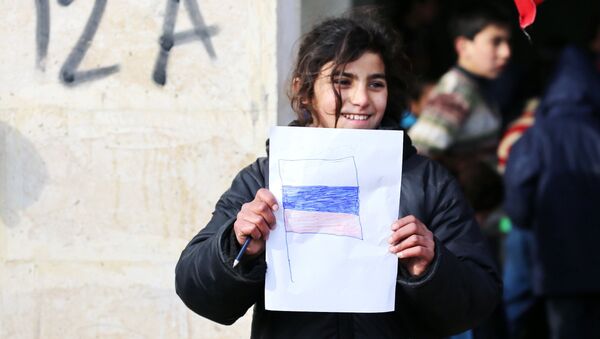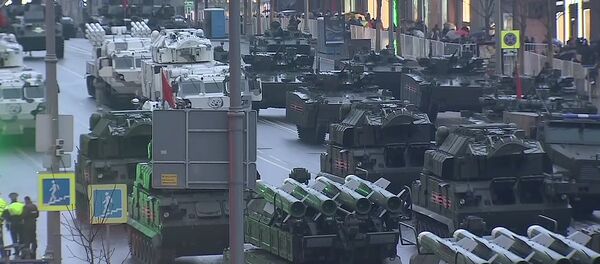This year, for the first time, a St. George's ribbon campaign was launched at Damascus University and within just a half-hour more than one and a half thousand ribbons were distributed to the public.
The ribbons were distributed along with memos, which explain the importance of this symbol in the history of Russia. The memo is still written in Arabic; however, it is possible that very soon it will be written in Russian because the Russian language is actually recognized in Syria as the second main language.
Russian language departments are open in all of the universities across the country. Syrians also begin studying Russian in schools starting from the seventh grade. Such was the decision of President Bashar al-Assad, whose children are also learning to read, write and speak the language.
On the streets of Damascus, one can even meet a Syrian child with a St. George ribbon on his chest, speaking Russian and saying his name is Putin. Do not rush to look around for a hidden camera prank – what he is saying can easily be true.
A Russian symbol of military valor, the Russian language and the naming of Syrian children with Russian names: all of these are signs of “gratitude Syrian people have to Russian people for their support,” the ambassador of Syria to Russia, Riyad Haddad said.
“You have a symbol of victory over fascism – we want us to have a symbol of victory over terrorism,” the head of the Russian language department of Damascus University, Mamduh Abu-al-Luway, told Sputnik.
Syria has been mired in civil war since 2011, with opposition factions and Islamist terrorist groups such as Daesh and al-Nusra Front, now known as Jabhat Fatah al-Sham, both outlawed in Russia and the United States, fighting the Syrian Army.
A number of foreign states, such as Israel and Turkey, have also carried out military activities on the territory of Syria in order to achieve own goals.



